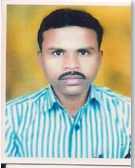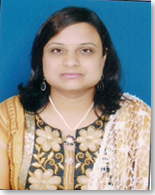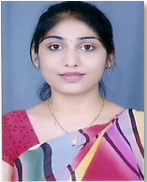- Goal: To educate students in areas of major diseases, healthcare options and hygiene including mobilization of community groups to better quality life.
- Need Addressed and the Context: Students from the Microbiology Department are in an ideal position to work with communities to create awareness of healthy living. This practice helps the community and also helps students to enrich themselves by community service.
- The Practice: Need-based community development programmes are planned through a dynamic process of communication between slum population, the staff and students of the institution. The following activities form a part of this practice:
Two days In-house Training Workshop and Community Awareness Program on ‘Mosquito Borne Diseases’ was carried out in association with District Malaria Office (DMO), Gondia on 6th & 7th March, 2019. This initiative is taken with an aim to spread awareness about malaria and malaria, the mosquito borne diseases among people living in slums. On first day, the In-house training workshop on ‘Detection of Mosquito Borne Diseases’ was conducted by the health staff of DMO, Gondia. They demonstrated various techniques used to diagnose malaria and malaria in patients and imparted hands-on training of detecting malarial parasites in blood using various techniques like microscopy, rapid diagnostic kits, etc. to students and many teachers at the Biotechnology Laboratory of the College. The team also has provided the guidance on ‘Prevention and Control of Mosquito Borne Diseases’, measures to eliminate every cause that helps in multiplication of the mosquitoes along with the details of parasitic life cycles through the effective PPTs.
On second day, the Community Awareness Program was conducted by all the trained students and teachers-in-charge along with the DMO team at the area Pendharitola, a slum near Kudwa Chowk, Gondia in order to percolate the information to the people living in there and hence tried to create awareness amongst them for the prevention and control of Mosquito Borne Diseases.
In this program, responses were collected from the people of slum to know their extent of awareness about these illnesses and the personal preventive measures through the survey conducted by the students. The common questions included whether they are aware of breeding sites, do they sleep in open, do they cover the water storage containers with lids, do they are aware of the medical care places where free blood checking and free treatment is available, etc. The DMO team and students carried out the blood tests on the field of the people having fever to check whether they are suffering from malaria using the diagnostic kits. Students have also checked the houses for the presence of breeding sites & unclean water storage containers. They persuaded the people about keeping their houses and surrounding area clean and the medical care centers where they can seek free medical treatment.
Both Dhote Bandhu Science College and District Malaria Office have signed a MoU between them for jointly conducting the community awareness programs and students’ training more often in future. Certificates were distributed to all the trained students. Pendharitola, a slum near Kudwa Chowk, Gondia in order to percolate the information to the people living in there and hence tried to create awareness amongst them for the prevention and control of Mosquito Borne Diseases.
In this program, responses were collected from the people of slum to know their extent of awareness about these illnesses and the personal preventive measures through the survey conducted by the students. The common questions included whether they are aware of breeding sites, do they sleep in open, do they cover the water storage containers with lids, do they are aware of the medical care places where free blood checking and free treatment is available, etc. The DMO team and students carried out the blood tests on the field of the people having fever to check whether they are suffering from malaria using the diagnostic kits. Students have also checked the houses for the presence of breeding sites & unclean water storage containers. They persuaded the people about keeping their houses and surrounding area clean and the medical care centers where they can seek free medical treatment.
A guest Lecture on ‘Cancer Awareness’ was organized on 24/08/19 in collaboration with Kokilaben Dhirubhai Ambani Cancer Hospital, Karanja, Gondia. To educate audience about the cancer Dr. M. Chaitanya Kumar, an Oncologist, Respected Centre Administrator of Reliance Cancer Hospital, Gondia was invited as a guest speaker for the program. During the talk Dr. Chaitanya shed light on the key risk factors of cancer, importance of cancer check-ups at an early stage and recognition of the early signs and symptoms of cancer. He said, if you are aware of risk factors then you can stay two steps ahead of cancer!”
Kuwar Tilaksingh District General Hospital, Gondia and Maharashtra State AIDS Control Society (MSACS) , Government of Maharashtra has organized HIV / AIDS Awareness program on 23th August, 2019 involving students of Red Ribbon Club (RRC) with the aim to make students aware about HIV/AIDS, so that the students can function as peer educators both inside and outside the college campus. On 13th September, 2019, the training workshop on “Know your status by HIV / AIDS test” was conducted at Antiretroviral Therapy (ART) department of Kuwar Tilaksingh District General Hospital by District AIDS Prevention and Control Unit (DAPCU), Gondia. Both D. B. Science College and District AIDS Prevention and Control Unit (DAPCU), Kuwar Tilaksingh District General Hospital, Gondia have signed a MoU between them for jointly conducting such activities more often in future. .
Global Hand washing Day on October 15 is dedicated to increasing awareness and understanding about the importance of hand washing with soap as an effective way to prevent disease and save life. To promote the culture of hand washing with soap and increase awareness about the benefits of hand washing among common people Department of Microbiology and Biotechnology along with Science Forum of Dhote Bandhu Science College, Gondia celebrated the Global Hand washing Day on 15th October, 2018 in association with Sahyog Polyclinic of Sahyog Hospital run by Ramade Memorial Medicare and Research Institute, LLP, Gondia by organizing a ‘Science Drama’- role at Gayatri Mandir
Premises, Kudwa, Gondia themed on ‘Clean hands – A recipe of health’ which is also the Global Hand washing Day theme of this year. Along with performing role plays students also demonstrated the effective and correct way of hand washing with soap and recited many awareness slogans- ‘Don’t be dirty, Be neat, Wash your hands before you eat’, ‘Clean hands- A recipe of health’, ‘Infection Control, is in your hands’, etc.
Global Hand washing Day has been celebrated by Department of Microbiology and Biotechnology every year.
- Evidence of Success: Positive feedback from community and students
- Resources: Dedicated team of teachers, motivated students and health care providers.






